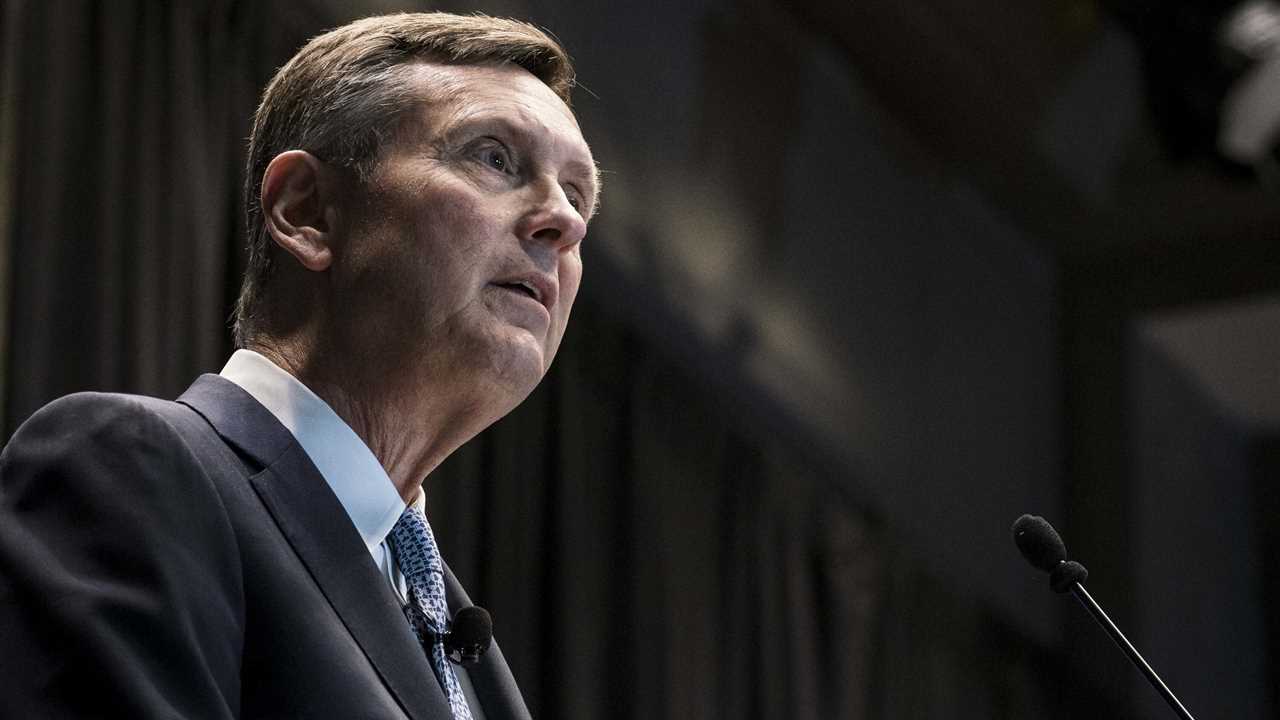
Richard H. Clarida, the departing vice chair of the Federal Reserve, failed to initially disclose the extent of a financial transaction he made in early 2020 as the Fed was preparing to swoop in and rescue markets amid the unfolding pandemic.Mr. Clarida previously came under fire for buying shares on Feb. 27 in an investment fund that holds stocks — one day before the Fed chair, Jerome H. Powell, announced that the central bank stood ready to help the economy as the pandemic set in. The transaction drew an outcry from lawmakers and watchdog groups because it put Mr. Clarida in a position to benefit as the Fed restored market confidence.Mr. Clarida’s recently amended financial disclosure showed that the vice chair sold that same stock fundon Feb. 24, at a moment when financial markets were plunging amid fears of the virus.The Fedinitially described the Feb. 27 transaction as a previously planned move by Mr. Clarida away from bonds and into stocks, the type of “rebalancing” investors often do when they want to take on more risk and earn higher returns over time. But the rapid move out of stocks and then back in makes it look less like a planned, long-term financial maneuver and more like a response to market conditions.“It undermines the claim that this was portfolio rebalancing,” said Peter Conti-Brown, a Fed historian at the University of Pennsylvania. “This is deeply problematic.”The Fed did not provide further explanation of Mr. Clarida’s trade when asked why he had sold and bought in quick succession. Asked if the Fed stood by previous indications that the move was a rebalancing, a spokesperson did not comment.The correction to the disclosures was released late last month and came after Mr. Clarida noticed “inadvertent errors” in his initial filings, a Fed spokesperson said, noting that the holdings were in broad funds (as opposed to investing in individual stocks). Mr. Clarida did not comment for this article.The extent of Mr. Clarida’s transaction is the latest development in a monthslong trading scandal that has embroiled top Fed officials and prompted high-profile departures at the usually staid central bank.Financial disclosures released in late 2021 showed that Robert S. Kaplan, the former Federal Reserve Bank of Dallas president, had made big individual-stock trades, while Eric S. Rosengren, the Boston Fed president, had traded in real estate securities. Those moves drew immediate and intense backlash from lawmakers, ethics experts and former Fed employees alike.That’s because Fed officials were actively rescuing a broad swath of markets in 2020: In March and April, they slashed rates to zero, bought mortgage-tied and government bonds in mass quantities, and rolled out rescue programs for corporate and municipal debt. Continuing to trade in affected securities for their own portfolios throughout the year could have given them room to profit from their privileged knowledge. At a minimum, it created an appearance problem, one that Mr. Powell himself has acknowledged.Mr. Kaplan resigned in September, citing the scandal; Mr. Rosengren resigned simultaneously, citing health issues. Mr. Clarida’s term ends at the close of this month, which it was scheduled to do before news of the scandal broke.Mr. Clarida’s trades, which Bloomberg reported earlier, also raised eyebrows among lawmakers, including Senator Elizabeth Warren of Massachusetts, who has demanded a Securities and Exchange Commission investigation into Fed officials’ 2020 trading. But many ethics experts had seen the transaction as more benign, if poorly timed, because it happened in a broad-based index and the Fed had said it was part of a planned and longer-term investment strategy.The new disclosure casts doubt on that explanation, given that Mr. Clarida sold out of stocks just days before moving back into them.“It’s peculiar,” said Norman Eisen, an ethics official in the Obama White House who said he probably would not have approved such a trade. “It’s fair to ask — in what respect does this constitute a rebalancing?”Business & Economy: Latest Updates
Updated Jan. 5, 2022, 8:37 p.m. ETStarbucks union workers near Buffalo walk out over Covid concerns.Fed officials discussed raising rates sooner and faster in 2022.HBO Max and HBO hit 73.8 million subscribers, topping company forecasts.It is unclear whether Mr. Clarida benefited financially from the trade, but it was most likely a lucrative move. By selling the stock fund as its value began to plummet and buying it back days later when the price per share was lower, Mr. Clarida would have ended up holding more shares, assuming he reinvested all of the money that he had withdrawn. The financial disclosures put both transactions in a range of $1 million to $5 million.The sale-and-purchase moveBy: Jeanna Smialek
Title: A Fed Official’s 2020 Trade Drew Outcry. It Went Further Than First Disclosed.
Sourced From: www.nytimes.com/2022/01/06/business/economy/richard-clarida-fed-stock-fund.html
Published Date: Thu, 06 Jan 2022 10:00:13 +0000
Read More
Did you miss our previous article...
https://badpoliticians.com/us-politics/discussion-with-times-reporters-about-the-fight-for-american-democracy-and-the-fragility-good-faith
 UK PoliticsWorld PoliticsVideosPrivacy PolicyTerms And Conditions
UK PoliticsWorld PoliticsVideosPrivacy PolicyTerms And Conditions
